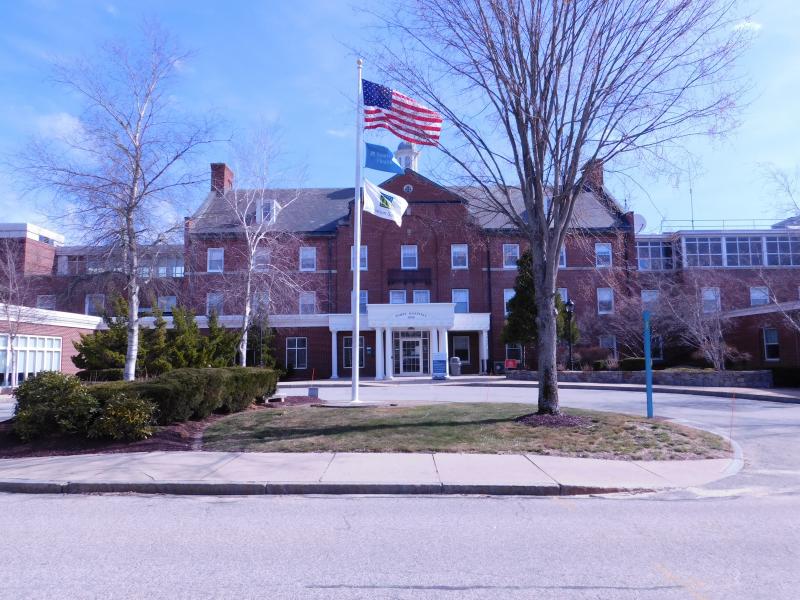Southcoast expands testing, works on new treatments for coronavirus
As the state begins to reopen, the doctors and nurses at Tobey Hospital and Southcoast Health are continuing to learn more about coronavirus and to work with new tests and treatments for the disease.
Initially, all the swab tests for coronavirus had to be sent to a commercial lab offsite for processing, which meant that patients often had to wait for as long as six or seven days for a result.
The hospital system now has two Luminex Aries machines, which can process up to 200 tests a day on-site. Patients often receive a result in less than 24 hours.
Dr. Dani Hackner, the chief clinical officer for Southcoast Health, said that the machines are also highly reliable, giving doctors and patients confidence in the results.
The machines run PCR (polymerise chain reaction) tests, meaning that the tests are able to detect even small quantities of the virus in a sample.
“The PCR machine is able to amplify that so it’s detectable and reportable,” Hackner said.
The hospitals are still facing some supply chain issues that limit the number of patients who can be tested each day, however, so staff are still working to carefully prioritize which patients can be tested and in what order.
Southcoast is also working with two new treatments for coronavirus: Remdesivir and convalescent plasma.
Convalescent plasma is plasma from the blood of patients who have fully recovered from coronavirus, which may be helpful to those who are currently battling the disease.
Hackner explained that this is a treatment that has been used successfully in treating other viruses. In conjunction with the Mayo Clinic and the American Red Cross, Southcoast Health is part of a study to determine whether this treatment is effective for coronavirus.
“In prior respiratory virus infections, there has been work demonstrating that the serum -- the liquid portion of blood -- from patients who have recovered from an infection contains antibodies that can either block virus, called neutralizing antibody, or prevent inflammation,” Hackner said. “Based on the literature and prior success in treating other viruses, Southcoast decided to join in an expanded access protocol with Mayo Clinic to help study and potentially treat with plasma from patients who have recovered.”
The Red Cross has set up a system to collect donations of this plasma and distribute it throughout the region.
Hackner stressed that this is a study in its early stages, but it does seem to be a helpful treatment.
“This has been used successfully in other diseases. It may not be enough, but the science is solid, and we do know that to date it’s been used very safely,” Hackner said, noting that Southcoast has not seen any patients worsening or having adverse reactions to the treatment.
Southcoast is also now treating patients with Remdesivir, an antiviral medication.
Early on into the pandemic, Hackner said that Southcoast initially struggled to get access to the medication, before receiving a shipment through a federal government emergency program. However, Southcoast officials found out that only three other hospitals in the state were given the medication.
Hackner worked with other hospital officials and the state of Massachusetts to redistribute the medication to other hospitals across the state based on the number of coronavirus cases in the hospitals’ service areas.
“We think it’s been a very fair and equitable process both among hospitals in the Commonwealth and within Southcoast,” Hackner said. This kind of redistribution of medication among hospitals is “extremely rare,” Hackner said, due to safety concerns. Luckily, the redistribution was supported at both the state and federal level.













